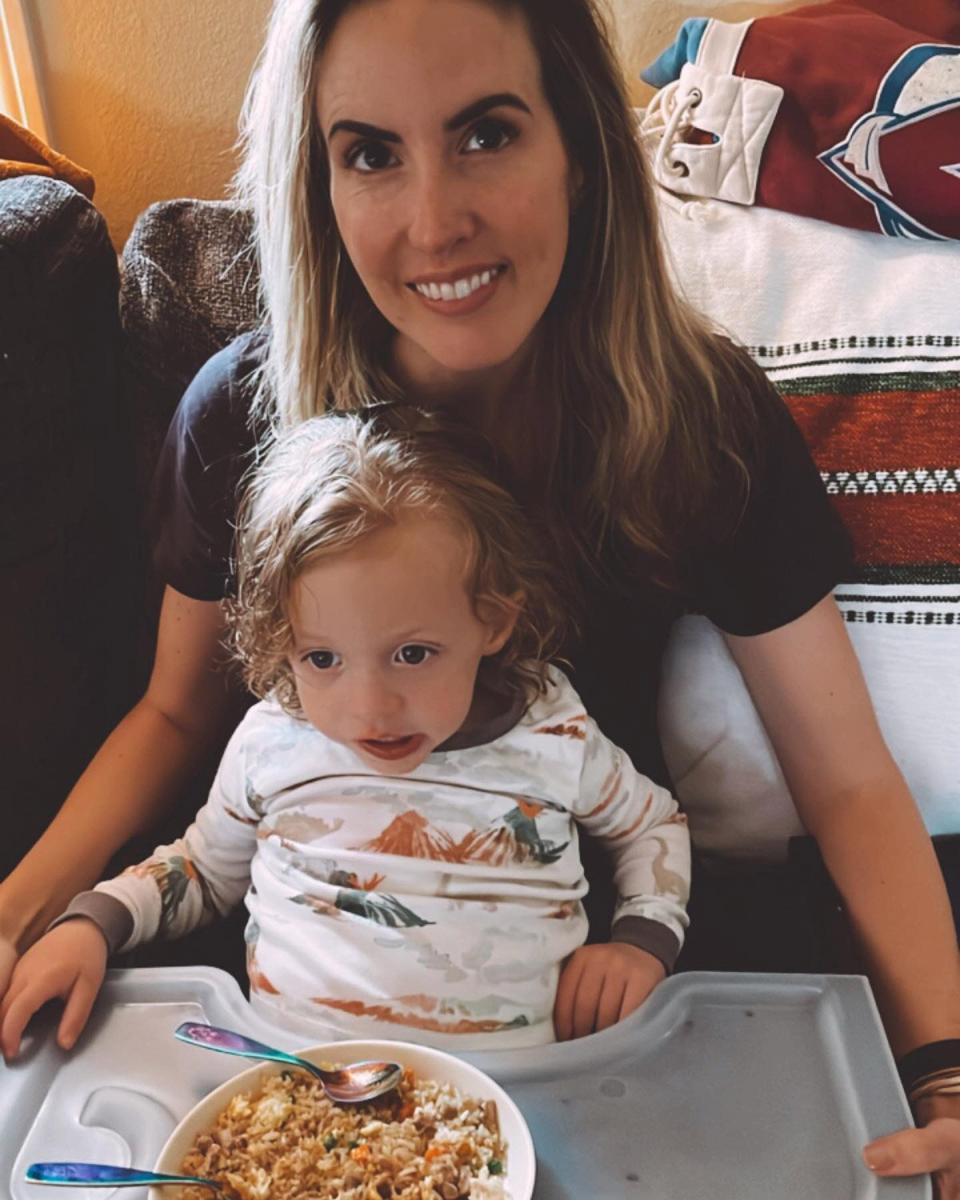Mom Shares How Embryo Reduction, a Form of Abortion, Saved Her Baby's Life — and Possibly Her Own

courtesy Kristin Diversi
It was a choice no mother should ever have to make: Save one unborn child or lose all three.
Creative consultant Kristin Diversi and her husband Blair of Montclair, New Jersey, tried for years to have children, eventually turning to fertility experts to get pregnant through embryo transplant with two donated and fertilized eggs.
She was told the chances were 60% of getting one child, 40% for twins and 2% for triplets.
"When I found out I was carrying twins, I was at six weeks, and I found out I was carrying triplets at nine weeks," Kristin, 35, tells PEOPLE. "So when I decided to go through selective reduction [reducing the number of fetuses in a pregnancy to improve the survival chances of the remaining fetus], it would absolutely be illegal under the current laws."
RELATED: Why I Chose to Have a Medical Abortion — Twice — While Struggling with Infertility for Years
The path from becoming pregnant to delivering her son Orion in January 2020 was fraught with difficult choices and financial struggles — all of which would have been amplified had she faced the hurdles of the current political moves to ban abortion.
Kristin ponders all the issues at play, including the government deciding when life begins. Will IVF be restricted? Will frozen embryos or created embryos be considered life? What will be the implications going forward for people requiring the reduction of embryos for baby or mom's health?

courtesy Kristin Diversi
In Kristin's case, two of her embryos shared a sac, while the third was in its own. As the two grew, one was already measuring behind, while the other was taking nutrients from the one that was lagging.
Early on, scans revealed trouble with the survival and health of the mono twins sharing the sac. The Diversis went to specialists, had rigorous testing and solicited second opinions.
The conclusions were the same: Either reduce the embryos to the thriving single sac, or lose all three fetuses. And possibly the mother as well.
"They call it selective reduction, but it was a partial abortion of two fetuses," Kristin says. "I saw them on the monitor. They had arms, they had legs, they were waving, just like my son was."
She continues: "They were girls, they were named — they were absolutely named — they were loved."
The procedure was scheduled at 13 weeks. Later in the pregnancy Kristin suffered from medical issues that were life-threatening.
RELATED: Celebrities Who Have Shared Their Abortion Stories to Help Women Feel Less Alone
"If I had been forced to carry those babies to term until they all died, or until they had to be born stillborn or missing organs or... ," she says, her voice breaking. "What's the point of it? What is the punishment here? What is the benefit to our society? What is the benefit to mothers?"
And where, she asks, are the support systems for medical and long-term care, economic hardships and even mental health challenges?
Kristin says she never stops thinking about her daughters and grieving for them.
"It's something you pull out of a box," she explains. "It can't live on your shoulder constantly because otherwise you cannot go on. The pain is so immense, it's so consuming."
RELATED VIDEO: Supreme Court Overturns Roe v. Wade, Eliminating the Constitutional Right to Abortion
When at a store recently, she heard a mother call out to her daughter with the name Kristin had planned to call her own daughter.
"I wanted all three of those babies so badly, and I still consider myself the mother of three babies, just two didn't... two are not outside," Kristin says.

courtesy Kristin Diversi
"But it was the only choice I had. I would sacrifice my life for my children, and I would sacrifice my life for my son, but those are my sacrifices to make. They're no one else's. They're not the courts, and they're not the country's. They're mine."
And, she says, it's the mother's right to decide what choice is best for her. She remembers another woman telling her she opted not to do the reduction on her triplets — and ended up losing them all.
"She did not agree with me about my choice, but I can live with my choice, and she can live with hers," Kristin says. "It doesn't matter why or how, but it matters that we have the choice."

 Yahoo Finance
Yahoo Finance 